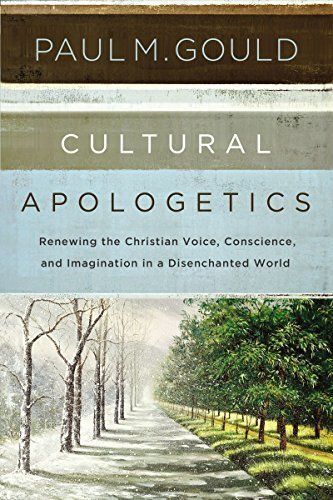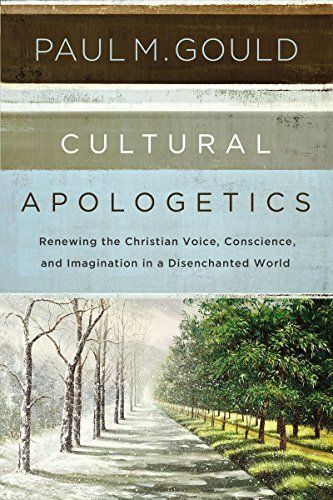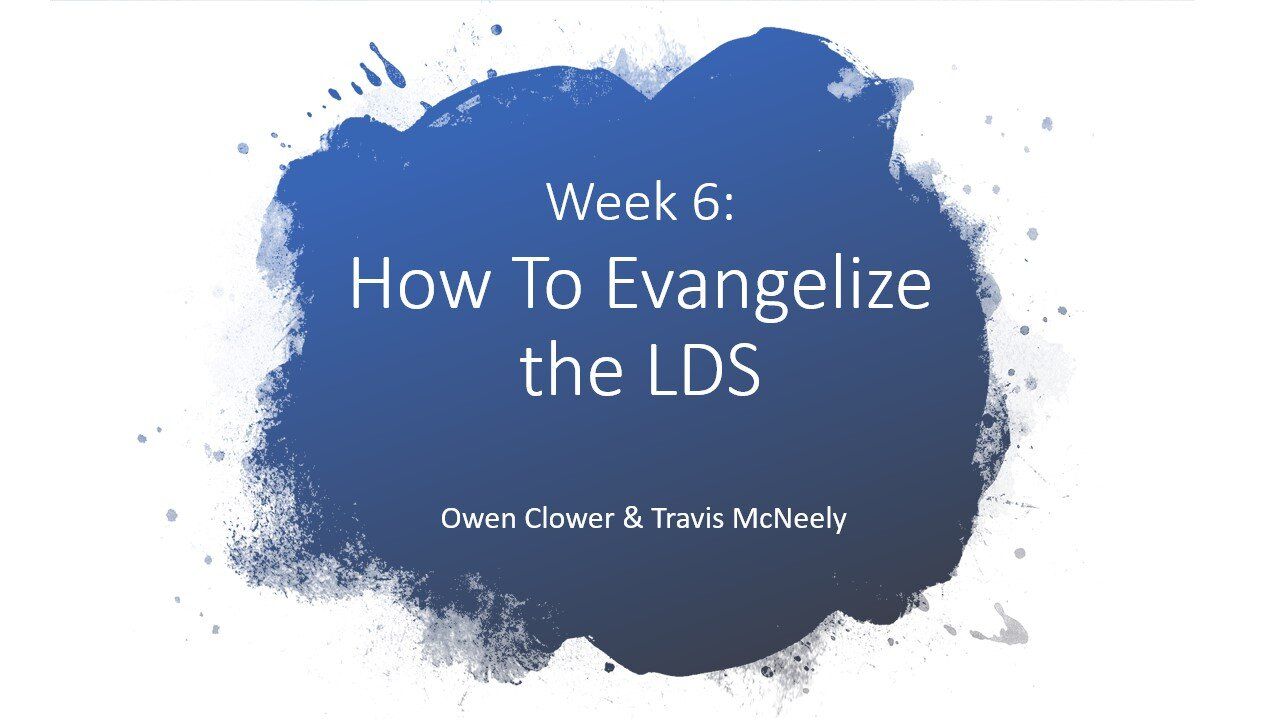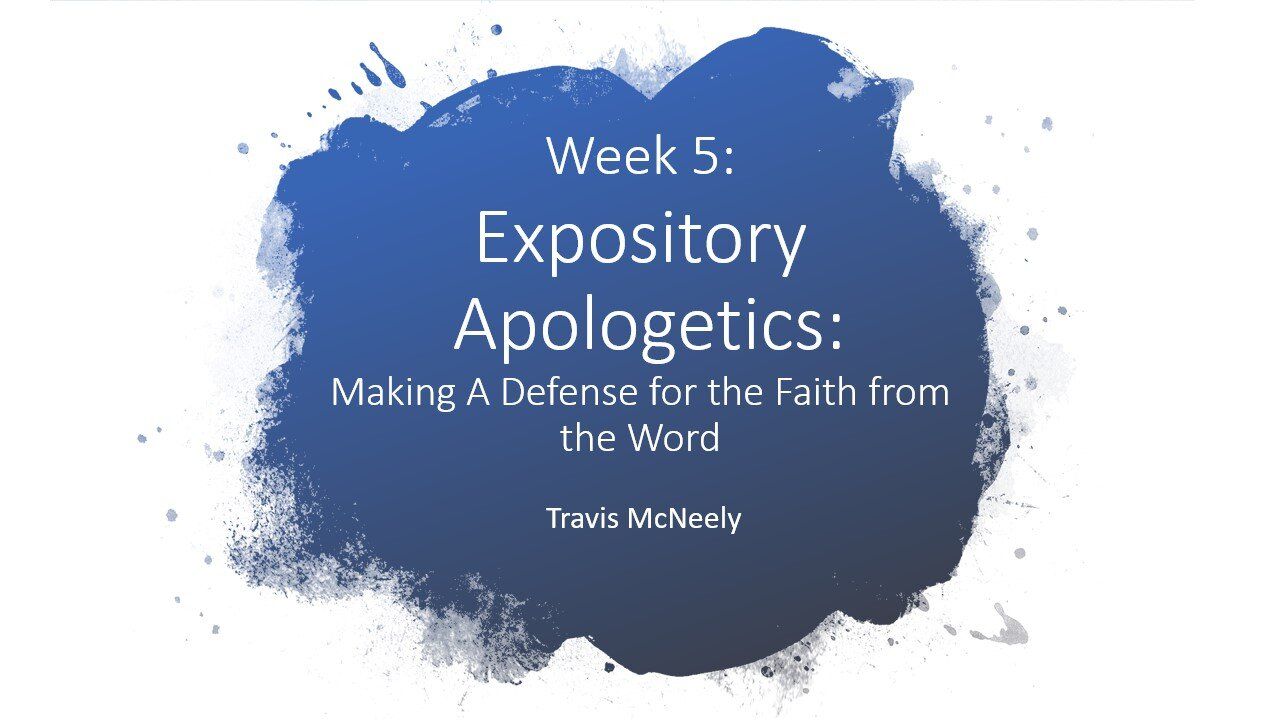Renewal Among the Ruins: The Necessity for an Effective Method of Cultural Apologetics (Book Review)

Preliminary Questions:
What is Cultural Apologetics? A working definition: "the work of establishing the Christian voice, conscience, and imagination within a culture so that Christianity is seen as true and satisfying" (21). One benefit of this definition is that it can work within any apologetic method as Gould lays out within his book.
What is the purpose of Cultural Apologetics? Why engage in it? "The cultural apologist works to resurrect relevance by showing that Christianity offers plausible answers to universal human longings. And she works to resurrect hope, creating new cultural goods and rhythms and practices that reflect the truth, beauty, and goodness of Christianity" (24).
What is the goal of Cultural Apologetics? What does it hope to accomplish? "Cultural Apologetics must demonstrate not only the truth of Christianity but also its desirability" (25).
Why should I get the book ? I detail this question in greater detail below.
Review:
In our disenchanted age, it is becoming exceedingly harder to live as a Christian and to make a case for Christianity. Often we are ignored and pushed to the margins unable to break in to share our story.
The Christian story (Creation, Fall, Redemption, Return) is the best possible story for the universe, but it is often seen as irrelevant or assumed to lack any intellectual grounds for belief in our age of scientism & materialism.
What Christianity needs today in regards to mission is a fresh model from the ancient text. A model that is often talked about in abstraction, but not given practical ways to imagine the way it should function in reaching our culture. The model for engagement is based off of Acts 17, Paul's speech at Mars Hill.
Based off of Paul's speech at Mars Hill, it is obvious that he understood the culture he was speaking too. He quotes some of their own philosophers and poets. He demonstrates the plausibility of Christianity by quoting universal truths from their poets but not applying it to their worldview, but to the Christian worldview.
As Gould puts forth in the book to the reader, "What is your Athens?" That is your starting point. You may live in the American South, the Pacific Northwest, or in more progressive countries across the pond or our Northern border. These places are radically different, but there is something universal about all of them--they are inhabited by humans who share the same universal longings for Truth, Goodness, and Beauty.
Truth is longed for by the intellectually disenchanted and thus Reason becomes that bridge to Christ who said, "I am the Way, the Truth, and the Life; no one comes to the Father, but through me" (John 14:6). In this age of disenchantment, the perceptions of many are bleak and hopeless. But in Christ we find He who is brilliant and wise, and yet more than an excellent moral teacher/sage.
Our culture longs for goodness and in a sensate saturated culture where we live by our experience of the material world, we long for more. But it is only grounded in the "here and now", not the "there and then" (28). Many are guided by their feelings and desires; rather than by reason, which has made us shallow. But when our good works are undergirded by rightly ordered longings, guided by the "there and then" we can make a strong case to the skeptic. Appealing to their longings for more, we can point to Him who satisfies more than anything. Longings for the Good are a bridge to Christ the righteousness of God.
Finally, beauty is no longer seen it is true light. Beauty is often associated with the base desire for sex in humanist materialistic framework. But beauty transcends that because we are more than animals. We are humans, made in the image of God. Beauty, through the bridge of the imagination, helps us to transcend this world to imagine otherworldly things, like God, heaven, and all that he has created that we can't see. The imagination is probably the most under-utilized and I'd argue, outrightly ignored aspect of our personhood and means of evangelization.
C.S. Lewis argued that we need our imagination to be baptized. Playing off the quote from the Problem of Pain--Gould rewords it to say, "Beauty is a divine megaphone to rouse a disenchanted world" (104). One way in which Gould illustrates this is from a story from World War II:
Beauty calls us home. It awakens and transports us. Beauty--in nature, in art, in humans, in the divine--awakens a longing within us for a world where everything is as it should be, where everything fits together in the right way. This longing, once aroused, compels us. Beauty also transports us out of the mundane. Consider, for example, a scene from the seige of Leningrad in World War II. During a German bombing raid, as people crouched in a bunker, a diarist wrote of an old man who started to play upon his violin. As the old man played, the diarist reported, "There are explosions all around us, and he is playing the violin as if he is leading us to safety. . . . The terror was somehow less powerful--it has lost its grip on us. It was outside us now; and inside we had our music, and everyone felt its power." In the bunker, they were confronted with bombs, blood, and corpses. The music transported them to another place. It reminded them how things should be, and they experienced the measure of peace, happiness, and rest. The beauty of the music reminded them of their humanity, and it sustained them through the darkest times. As Roger Scruton insightfully observes, "Art, as we have known it, stands on the threshold of the transcendental. It points beyond this world of accidental and disconnected things to another realm, in which human life is endowed with an emotional logic that makes suffering noble and love worthwhile. Nobody who is alert to beauty, therefore, is without the concept of redemption--of a final transcendence of moral disorder into a 'kingdom of ends.'" (pg. 104).
Although an extensive quote, I think it well illustrates my point. When I first took the class I thought beauty was important, but not as important as goodness and truth. I believed lies such as, "beauty is in the eye of the beholder" and so on. I didn't place Beauty where it properly belonged--in the Person of Christ Jesus. When we look at Truth, Goodness, and Beauty finding their source in Jesus, it changes everything. Especially when we can display in our evangelization of the world that the best possible framework for the world is the Christian one. That it is the truth about reality, the moral superior, and the most beautiful way to view the world.
If we want to see true renewal in the ruins of Western Civilization we must understand why we are where we are. This book helps us to understand our Athens and from there we can develop a strategy of looking at these three transcendentals and looking along them (an idea well developed in each section). They are bridges for the skeptic. The barriers are there, and this book helps us to best approach them. This book is a gift to the church for world evangelization and discipleship.
I hope you find this review helpful and that you'll go buy AND apply this book in your mind, work, acts of mercy, and engagement with God's beautiful creation.
Dr. Paul Gould has spent countless hours teaching, discipling, and ministering to seminary students, colleagues and many other Christians the importance of this subject--Cultural Apologetics. I'm gladly a recipient of his patient discipleship. I write this review not merely academically, but affectionally in how grateful I am for his influence in my life. Dr. Gould has written a highly anticipated book that helps us to think missionally as believers in a secular culture that doesn't make room for us. This article is a review of this new book: Cultural Apologetics: Renewing the Christian Voice, Conscience, and Imagination in a Disenchanted World.

Want To Book Me for Your Event or Conference?
Fill out the form below and we'll be in touch!
Book Travis McNeely
We will get back to you as soon as possible
Please try again later
More posts like this...




